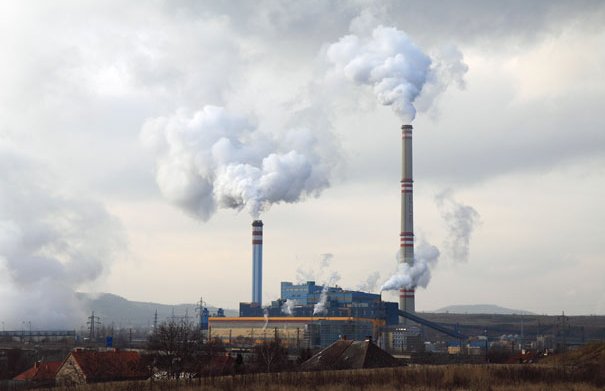Turkey fails to reduce carbon intensity in power generation, shows report

Photo: Public Domain Pictures
Carbon intensity has not declined in line with the drop in Turkish electricity generation over the last three years from high hard coal import costs, according to the Turkey Electricity Review 2020 from London-based think tank Ember.
Turkey's electricity generation fell in 2021 for the third successive year, marking an 8 percent drop between 2018 and 2021.
In 2018, coal generation peaked at 113.2 terawatt-hours (TWh) and was followed by a decrease of 0.3 TWh in 2019.
Coal generated 7.1 TWh of less power in 2020 when five lignite plants were forced to close operations for six months due to their non-compliance with new air pollution limits. The plants resumed operations after tne end of suspension.
Ember calculated that Turkey saw another drop of 1.7 TWh in coal generation last year due to skyrocketing hard coal prices, while also marking a third consecutive annual decline in coal power.
CLICK - 'Coal has no future in Turkey'
CLICK - 'Particulate matter emitted by coal-fired plants spread across Turkey'
CLICK - Two towns from Turkey among top five places with highest sulphur dioxide pollution
The share of coal in total electricity generation was 37 percent in 2018, but dropped to 32 percent in 2021.
"It is unsure whether 2018 would be the year of peak coal in Turkey, as the country still has plans to expand its coal generation," the report said.
The cost of power generation with imported coal exceeded 70 US dollars per megawatt-hour, which superseded the much cheaper cost of generation from wind and solar.
Carbon intensity
In 1990, Turkey outperformed many countries in Europe in terms of carbon intensity per kilowatt-hour of electricity production.
In 2004, Turkey's carbon intensity of power which stood at 412 grams per kilowatt-hour was still better than Germany at 524 grams per kilowatt-hour, the UK with 464 grams per kilowatt-hour, Denmark with 542 grams per kilowatt-hour, the Netherlands with 499 gram per kilowatt-hour, Greece with 757 grams per kilowatt-hour, Romania with 481 grams per kilowatt-hour and Bulgaria with 473 grams per kilowatt-hour.
"However, this has turned upside down over the course of 17 years," Ember said in the report.
The steady increase in non-hydro renewables in Turkey was enough to keep its carbon intensity in electricity production at similar levels.
CLICK - A country outside of the global climate policy: Turkey
According to the review, Turkey ended up with a 3 percent higher carbon intensity in 2021 in comparison to 2004. Over the same period, Denmark reduced its carbon intensity by around 60 percent, Greece and the UK managed a reduction of 50 percent, while Romania and Italy both achieved a 45 percent decline.
Despite their lack of ambition to phase out coal, even the Netherlands, Germany and Bulgaria were able to decrease their carbon intensity by 32 percent, 28 percent and 13 percent, respectively in the same period.
Non-hydro renewables
In Turkey, non-hydro renewable generation, including wind, solar, geothermal and bioenergy doubled since 2017 and overtook hydropower for the first time in 2021.
Wind and solar held the biggest share at 13.6 percent of total power generation in 2021, up from 11.7 percent in 2020, while biomass and geothermal hit a 4.9 percent share last year.
Wind and solar generation set a record by reaching 44.6 TWh, a 25 percent rise year over year, Ember calculated.
Last year, the decline in hydropower output was compensated by gas power. While hydro share decreased from 26 percent in 2020 to 17 percent in 2021, gas increased from 23 percent to 33 percent year over year.
Fossil fuels accounted for 65 percent of the total power generation in 2021.
The growing demand
Despite Turkey's doubling of renewable output in the last 10 years with 58 TWh, this increase was not enough to meet growing demand.
The country's power demand grew by 95 TWh during the same period, when the gap was mostly filled by imported coal.
"Turkey ratified the Paris Agreement in 2021 and set a net zero target. Despite its 2053 carbon neutrality target which implies coal exit sooner or later, there is no coal phase-out date or commitment not to build new coal in place yet," Ember said in the review. (VK)
"The growth in renewables excluding hydro is promising. However, it is still lagging behind the surge in power demand."
Turkey can turn its overreliance on hydro into an advantage by covering its large reservoirs with solar, Ember said in the report. (VK)









